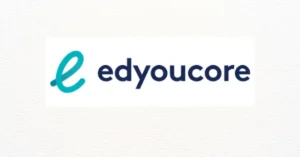Business Ownership- For years, Mariah Simmons sat in a cubicle answering phones and processing invoices for a regional insurance firm in Akron, Ohio. She was efficient, overqualified, and, as her friends often reminded her, visibly uninspired. Every Sunday evening brought the familiar ache of dread. What if she started the bakery she always dreamed of? What if she left and failed?
Today, that bakery exists — thriving in a converted corner shop on West Exchange Street — but it took Simmons more than a decade to leap.
“It wasn’t the risk of losing money that scared me,” she reflects. “It was the fear of not being enough.”
This isn’t just Mariah’s story. It is the untold narrative behind countless careers that never took flight. At the heart of the issue is a potent, often invisible force: fear.
In a country founded on entrepreneurial spirit, fear is quietly keeping millions from ever exploring business ownership. For every success story celebrated on magazine covers, there are hundreds of would-be entrepreneurs stifled not by lack of capital or market fit — but by self-doubt, uncertainty, and internal hesitation.
This article explores that fear. Not to vilify it — fear serves a purpose — but to understand its nature, its origin, and how to navigate it without letting it dictate the course of your life.
The Myth of the Fearless Entrepreneur
From Silicon Valley to Wall Street, the dominant image of an entrepreneur is brash and bulletproof — the kind of individual who leaps without a parachute and lands with a Series A investment.
Reality, however, is quieter.
“Entrepreneurs aren’t fearless,” says Dr. Leonard Grimes, a behavioral economist and author of Calculated Risks. “They’re people who learn to work with fear, not deny it.”
This difference is crucial. Fear is not a sign that someone isn’t suited for business ownership. It is evidence that they care deeply, that they recognize the stakes.
And yet, in a culture that prizes confidence, acknowledging fear is often mistaken for weakness. Many aspiring business owners never even begin, wrongly believing that fear is a stop sign rather than a starting bell.
The Five Faces of Fear in Business Ownership
Fear takes many forms. Understanding these can help deconstruct the myths and replace paralysis with strategy.
1. Fear of Financial Ruin
This is perhaps the most obvious and universal. Starting a business often involves upfront investment — in money, time, and energy — with no guaranteed return.
“I had two kids and a mortgage. I couldn’t justify putting our savings into a café,” says James Lee, who eventually opened a mobile coffee truck after starting smaller.
Solution: Begin with low-capital models. Side hustles, online services, or consulting ventures allow early traction with minimal risk. Financial fear becomes manageable when business building is iterative, not all-or-nothing.
2. Fear of Inadequacy
Impostor syndrome runs rampant in the world of solo ventures. Many fear they lack the qualifications, credentials, or charisma to succeed.
Solution: Business ownership isn’t about being the smartest — it’s about creating value. Start with a problem you understand. Build your business around solving that. Competence grows with experience.
3. Fear of Judgment
The question is not “what if I fail?” It’s “what will people say if I fail?” Fear of embarrassment keeps people quiet, compliant, and inert.
Solution: The majority of successful entrepreneurs have failed once — or multiple times. Reframing failure as data, not drama, helps strip away the shame and reinforce resilience.
4. Fear of Success
Strangely, this is a real block. What if the business works? What if it grows too big, too fast? What if your life changes more than you’re prepared for?
Solution: Success doesn’t need to overwhelm. Boundaries, intentional growth, and a clear purpose help owners scale in alignment with their personal lives and values.
5. Fear of the Unknown
Entrepreneurship involves a lot of blank spaces — no clear schedules, no bosses to tell you what to do, no default paths. For many, that ambiguity is terrifying.
Solution: Build structure into freedom. Use planning systems, accountability tools, and communities to replace the scaffolding left behind by traditional employment.

The Psychology of Entrepreneurial Hesitation
Psychologists and neuroscientists studying decision-making often point to our innate bias toward safety. The brain is designed to avoid loss more strongly than it seeks gain — a phenomenon known as loss aversion.
In entrepreneurship, this means even modest risks can feel overwhelming compared to the stable paycheck and familiar discomforts of employment.
But there’s a deeper, more personal layer at play: identity fear.
“We tie our worth to our roles,” says Dr. Nina Umecki, a clinical psychologist who specializes in work-life transitions. “Becoming a business owner threatens those definitions. It’s not just about a new job. It’s about a new self.”
Changing jobs feels like logistics. Becoming a business owner feels existential. And that, she explains, is where fear thrives.
The Cost of Staying Safe
While fear often feels like protection, it has a hidden cost.
1. Untapped Potential
Thousands of ideas — useful, viable, community-serving — are lost each year to hesitation. The economy doesn’t just lose innovation. It loses energy, passion, and diverse perspectives.
2. Emotional Exhaustion
Staying in roles that no longer fit leads to burnout. When passion is suppressed by fear, even high-performers experience disengagement and disconnection.
3. Delayed Fulfillment
Every year spent waiting is a year of growth postponed. For many, the regret of not trying becomes heavier than the fear of failing.
Real People, Real Courage: Profiles in Quiet Entrepreneurship
Sara Al-Mustafa, 42 – Houston, TX
Former HR administrator. Now runs a digital wellness coaching business.
“I didn’t want to build an empire. I just wanted to work with people one-on-one. That clarity made fear irrelevant.”
Omar Teague, 59 – Detroit, MI
Laid off during the pandemic. Used his severance to buy used tools and start a mobile bicycle repair business.
“It was terrifying. But after 20 years working for someone else, I had nothing to lose — and everything to try.”
How to Move Through Fear: A Framework
Fear doesn’t need to be eliminated. It needs to be understood and partnered with. Here’s a practical framework.
1. Name the Fear
Write it down. Speak it aloud. Label it with precision. “Fear of failing in front of my kids” is more actionable than “I’m just scared.”
2. Measure the Risk
Separate fear from actual danger. What’s the worst-case scenario? What’s the most likely? What’s in your control?
3. Start Smaller
Fear hates motion. Begin with micro-actions. Register a domain. Offer a beta version. Speak to a mentor. Momentum builds confidence.
4. Seek Support
Isolation magnifies fear. Find communities — online, in coworking spaces, or through entrepreneurial networks — where vulnerability is normalized.
5. Rehearse the Identity
Start saying, “I’m working on a business,” even before it’s profitable. Identity often precedes achievement.
When Fear Is a Signal to Pause — Not Quit
Not all hesitation is unfounded. Sometimes fear signals misalignment — not cowardice. If your business idea goes against your values, lifestyle needs, or long-term vision, fear may be asking you to adjust, not abandon.
Learning to discern between fear rooted in growth and fear rooted in wisdom is a lifelong skill. One way to tell: Does the fear feel energizing or draining? Growth fear often feels electric. Misalignment fear feels heavy.

Business Ownership in a New Era
The post-pandemic world is reshaping how people view work. More than ever, people crave autonomy, purpose, and flexibility. Entrepreneurship isn’t just an economic choice. It’s a psychological and social one.
But the old narrative of “leap and build your wings on the way down” no longer fits.
Today’s entrepreneurs are often cautious, value-driven, slower to scale — but just as serious.
The biggest revolution may not be in technology or funding, but in how we think about courage. Fear doesn’t need to vanish for action to begin. In fact, business ownership often starts in the heart of fear — when you do it anyway.
Final Thoughts: You’re Not Behind
For those who’ve delayed starting a business out of fear, this message is for you: You’re not too late. You’re not too old. You’re not unqualified.
The stories we celebrate — of founders starting from garages or side hustles — often skip the years of hesitation, the quiet planning, the late-night second-guessing.
But that part is normal. That part is human. That part may even be essential.
What matters most is not when you start, or how fast you grow, or how flashy your launch looks.
What matters is that you don’t miss out — not because the idea wasn’t ready, but because you let fear decide for you.
Business ownership is not for everyone. But the chance to explore it — to test your ideas, to see yourself in new roles, to build with purpose — belongs to everyone willing to begin.
For more information, click here.









